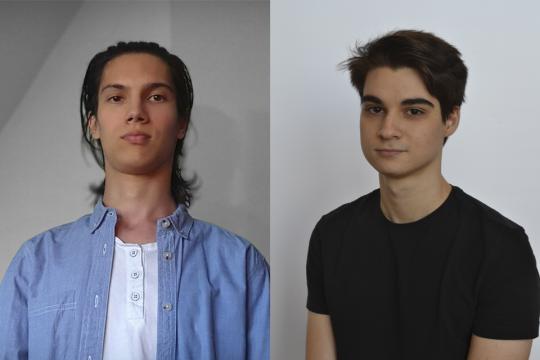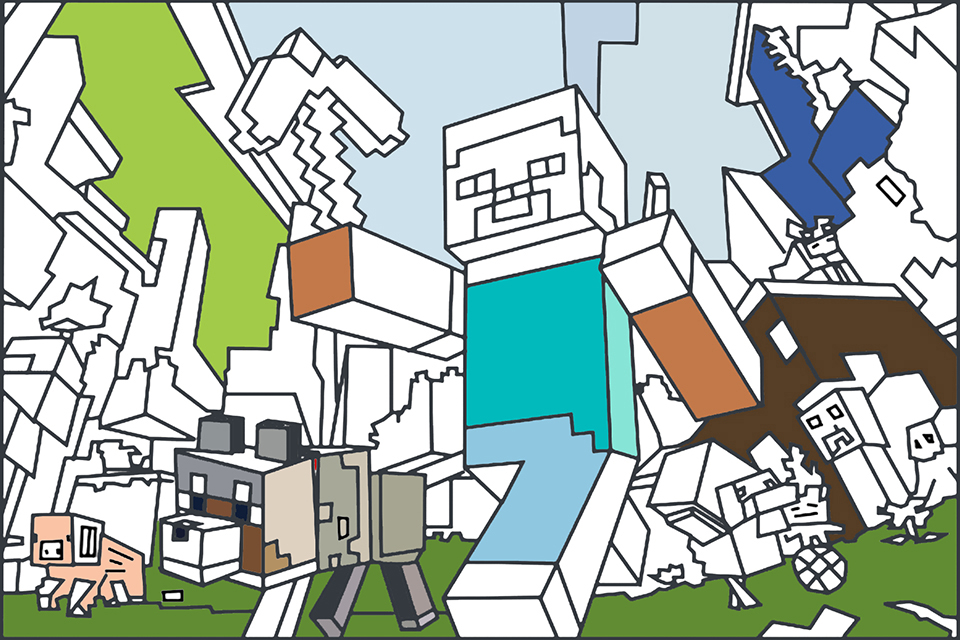Alexandru Iosup, a Professor of Computer Science, had conducted research projects with students during his tenure at Delft University of Technology and was convinced that VU Amsterdam would also benefit from providing students with a similar work experience. Iosup began the project last year, along with Charlotte Gerritsen, a Assistant Professor of Artificial Intelligence, and Selma Zaghow, an Education Coordinator. “The honours programme in our department provides students with the option of taking extra courses. That’s nice, but it’s also just more of the same. A thesis alone does not prepare a student for the world of research.”
Vain academia
By pairing students with supervisors, students gain first-hand experience in how research is conducted, before then working through the various stages of the research process themselves. “Academics are very vain people. That vanity derives from their ability to solve difficult, seemingly intractable scientific problems. However, if we solve all of these problems for our students, then they will not know how to approach a similar situation themselves. In our project, students themselves help to define the problem, before developing a way to solve it – performing all of the components of full-blown research.”
Tagging along
During meet-ups, professors present their research subjects and interested students are able to apply for whichever one captures their interest. Bringing students onboard in this way to show them the ropes demands additional care from supervisors. “There is a clear element of apprenticeship. The honours students learn from seeing how the team or the supervisor works. Patience is an important element in the teaching process, as having students tagging along for the research journey can present a real test for supervisors. But they get help with their work, and there’s a strong element of pride involved. They are happy when their students succeed.”
‘Students start asking themselves bigger questions’
The project comprises three components. First, students focus on defining the problem and typically construct an instrument that will help them to approach the problem. Next, they conduct an initial attempt at solving the problem. “That’s where students make the jump. They start asking themselves bigger questions.” The last step in this process, which involves finalizing the outcomes, tends to vary across the different research projects. For example, some students might present their findings at scientific conferences, while others will go on to publish their results in academic journals. Iosup estimates that, in total, the average student should ideally spend around a year on the project – earning them 18 credits out of 30 for the entire honours programme.
Diverse group
Any student in the Department of Informatics who has passed their coursework and has a grade point average of 7.5 is welcome to join. By only setting these minimum requirements, Iosup hopes to make the project accessible to as many students as possible. “By setting the bar at a grade of 7.5 rather than, say, 9, we are only filtering out those students who cannot cope with a heavy workload. The majority of honours students thus have the chance to join.”
Over the course of his work experience in seven different countries, Iosup has seen first-hand how exclusion works. “Visible aspects of human beings would lead to their dismissal. I am very proud of what I am seeing in this programme. The group comprises people of different genders and beliefs, as well as a wide range of ethnic groups. While a group of only ten to fifteen people can never include everyone, it is nevertheless a representative slice.”
Students being students
Providing students with first-hand experience of conducting research early in their careers will benefit them later in life, Iosup believes. “When you are young, you have unparalleled energy. Over time, you encounter a variety of limits. In this respect, students bring a new set of eyes to research teams.”
However, students at this stage of their lives can also be an unpredictable group. “Students may drop out for a variety of reasons. They may go abroad or start volunteering. Others may fall in love and shift their focus. It is an expensive project and not everyone will complete it. But it is vitally important that we do not waste students’ years of brilliance.”
‘This knowledge has promising potential’

Alex Balgavý (left) and Tiberiu Iancu are two of the students in the project.
Balgavý (21) decided to join around a year ago, during the third year of his Bachelor’s programme in Computer Science. He partnered up with Sacheendra Talluri, a PhD candidate who is studying failures in cloud services. “The cloud is huge, everything runs on it. Yet everybody has had the experience of working in a cloud system that for some reason was failing.” Having had no prior experience with research projects, Balgavý was uncertain at the onset of the project. However, things that he initially dreaded, like writing large academic papers, turned out to be less of an issue than he originally thought.
From the start, Tiberiu Iancu (20) was slightly more confident that the project would be a success. “I knew someone that was already working on the project, so I knew more or less what the process would look like.” Together with supervisor Jesse Donkervliet, his research is a case study that examines the use of serverless computing in the videogame Minecraft. Serverless computing is already extensively used, because, among other things, it allows for the quick and efficient use of remote computing resources, with minimal human input. To the best of his knowledge, it has yet to be applied to the world of gaming, but it has great potential. “Minecraft has more than 120 million players per month. We are finding ways for multiple players to join the same game, without experiencing any slowdown.”
Practice in public speaking
Within the project, there are no specific courses or tracks that teach the students skills like writing or public speaking. Professor Iosup believes that these are skills they can learn along the way, through practice and apprenticeship. As Iancu himself notes: “During our research meet-up, we present our findings to the other students. And within the team we practice public speaking and writing. But speaking at a conference would be a big step up in this respect. I do not think I am ready for that yet.”
Although Balgavý acknowledges that it is more work than he anticipated prior to starting, neither of the students appear to be too concerned about work-life balance. Balgavý notes: “I meet up every one or two weeks with my supervisor and outside of supervision we have meetings with all of the researchers. It takes a lot of organization, but it is very doable alongside my other studies.” Similarly, Iancu explains: “Now with corona going on, all I really do outside of this [research] is go to the gym or play games and watch movies. I do not have the problem of having too many other hobbies.
